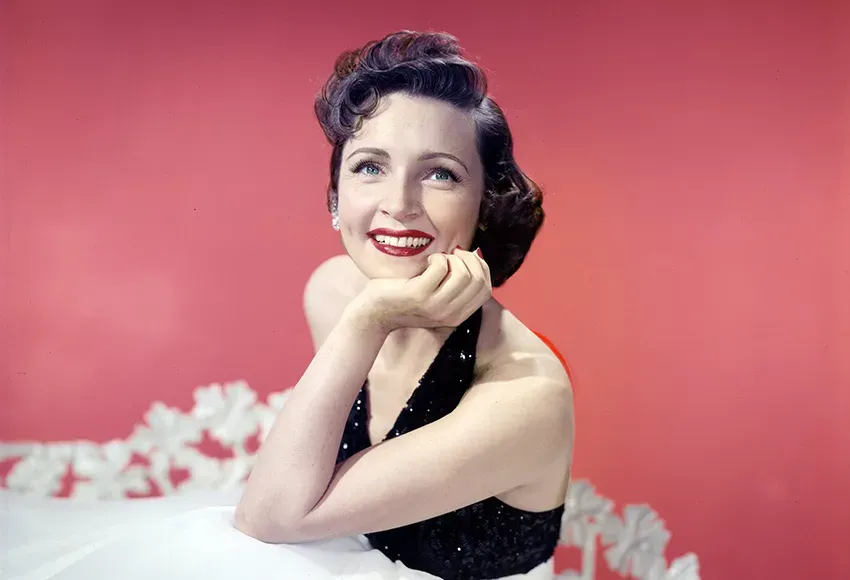Last Thanksgiving I spent by myself. I live in my van and travel full-time as a nomad, and I wasn't near anyone I could celebrate with. Naturally, I was in my feels, lonely on a holiday. So I published this to Facebook:
"Need something to be thankful for today? We're less than two months away from Betty White's 100th birthday."
Current events considered, that post didn't age well over the course of a few weeks, certainly not as well as its subject had over her lifetime.
I know what you're thinking: I killed Betty White.
Of course I didn't, but when the news broke of the legendary actress's passing on New Year's Eve, I felt guilty for perhaps jinxing her chances of achieving centenarian status with my premature hopefulness. Thankfully, I'm not superstitious. The fact is, Betty White was old. Ninety-nine years old. It was her time.
There was something else I felt when I read TMZ's report on 2021's last hurrah: cheated.
Yes, I felt cheated. I don't think I'm alone when I say that we all deserved – after enduring several years of mounting setbacks and increasingly terrible headlines – to see America's grandmother reach a milestone birthday that less than 1% of the human population reaches. Nobody deserved it more than Betty herself, but we deserved it too. Still, her last-day-of-the-year death wasn't altogether surprising. Chalk it up to one more way the 2020s are royally fucking us.
Blue-check Twitter user Qasim Rashid, Esq. managed to soften some of that blow, however. Hours after Betty's death started trending, he offered a virtual Band-Aid for our collective hearts with this (unedited) tweet:
"On one hand she was 99 years 348 days old when she died. On the other hand she lived through 24 leap years, i.e., 24 extra days. All I'm saying is mathematically, it arguably checks out that she lived 100 years and 7 days."
That declaration is hereby official as far as I'm concerned.

Digging a little deeper, what was it about Betty White that endeared us to her, perhaps more than any other Golden Girl our queer community quotes, imitates, and venerates?
That she was the last one left? Her singular dedication to animal welfare? Her Guinness World Record for the longest-working person in television? Those inevitable appearances on our lazy Sunday game show rerun marathons? Or maybe the way she played Rose Nyland with such believable naivety?
There's something to that last one.
Betty played plenty of memorable TV characters before Rose: the title character on Life with Elizabeth in the 1950s, making history as the first female producer of a sitcom; perpetually perky Sue Ann Nivens on The Mary Tyler Moore Show; and Ellen Harper Jackson on Mama's Family.
But Rose was different than any character Betty had taken on before – and that's exactly why she chose to play her.
Any homo worth his salt knows that Betty originally was offered the role of Blanche, and Rose was meant for Rue McClanahan. The former didn't want to play another iteration of sex-charged Sue Ann – the part she was most famous for before the 1985 premiere of The Golden Girls – nor did McClanahan want to regurgitate the sweet-but-scatterbrained Vivian Harmon, whom she played on Bea Arthur's previous vehicle, Maude. So they switched. And none of us can imagine it any other way.
The Golden Girls was popular among Queers then and now because we see ourselves in them. Among our own friends, we know a Sophia, Blanche, Dorothy, and Rose. We personally identify ourselves as one of those character types as well. Or a blend of two or more. Me? I'm a quick-witted, smart-mouthed Dorothy-Sophia hybrid. Proudly.
Betty wasn't Rose, though. According to her friends, she was bawdy, a little bit crude at times. She enjoyed vodka and hot dogs. During World War II, she drove a PX truck as a member of the American Women's Voluntary Services. She never had a single acting lesson.
While those first few characteristics make her relatable – especially for a celebrity who's been one the entirety of most people's lives still living on this planet – it's the last detail that stands out for me. She never had a single acting lesson because she didn't need one. She was a natural, but she also was genuine. We saw it and we felt it, in our homes and in our hearts, decade after decade. We didn't have to meet her in person to know that, unequivocally, if we threw a party, invited everyone we knew, we would see...
You know where I'm going with this.
Betty White – thank you for being our friend.
Mikey Rox is an award-winning journalist and LGBT lifestyle expert whose work has been published in more than a hundred outlets across the world. Connect with Mikey on Instagram https://www.instagram.com/mikeyroxtravels/


